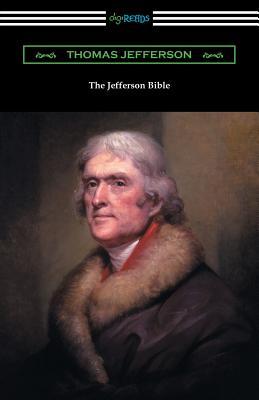"The Jefferson Bible" or "The Life and Morals of Jesus of Nazareth" as it was originally entitled is an extraction of biblical passages constructed by Thomas Jefferson sometime around 1819. In an 1803 letter Jefferson remarks that he first conceived of the idea of writing his interpretation of the "Christian System" sometime during 1788-89. He first accomplishes it in a more limited fashion in 1804 with "The Philosophy of Jesus of Nazareth" which he describes in an 1813 letter to John Adams as follows: "In extracting the pure principles which [Jesus] taught, we should have to strip off the artificial vestments in which they have been muffled by priests, who have travestied them into various forms, as instruments of riches and power to themselves... There will be found remaining the most sublime and benevolent code of morals which has ever been offered to man." The work is notable in the absence of any reference to the supernatural aspects of Jesus' life including the divine birth and the resurrection. According to Jefferson "Jesus did not mean to impose himself on mankind as the son of God" and he believed that "the day [would] come when the mystical generation of Jesus, by the supreme being as his father in the womb of a virgin, [would] be classed with the fable of the generation of Minerva in the brain of Jupiter." Presented here is the 1904 Government Printing Office edition presented to members of Congress with the original introduction by Cyrus Adler printed on premium acid-free paper.

"The Jefferson Bible" or "The Life and Morals of Jesus of Nazareth" as it was originally entitled is an extraction of biblical passages constructed by Thomas Jefferson sometime around 1819. In an 1803 letter Jefferson remarks that he first conceived of the idea of writing his interpretation of the "Christian System" sometime during 1788-89. He first accomplishes it in a more limited fashion in 1804 with "The Philosophy of Jesus of Nazareth" which he describes in an 1813 letter to John Adams as follows: "In extracting the pure principles which [Jesus] taught, we should have to strip off the artificial vestments in which they have been muffled by priests, who have travestied them into various forms, as instruments of riches and power to themselves... There will be found remaining the most sublime and benevolent code of morals which has ever been offered to man." The work is notable in the absence of any reference to the supernatural aspects of Jesus' life including the divine birth and the resurrection. According to Jefferson "Jesus did not mean to impose himself on mankind as the son of God" and he believed that "the day [would] come when the mystical generation of Jesus, by the supreme being as his father in the womb of a virgin, [would] be classed with the fable of the generation of Minerva in the brain of Jupiter." Presented here is the 1904 Government Printing Office edition presented to members of Congress with the original introduction by Cyrus Adler printed on premium acid-free paper.